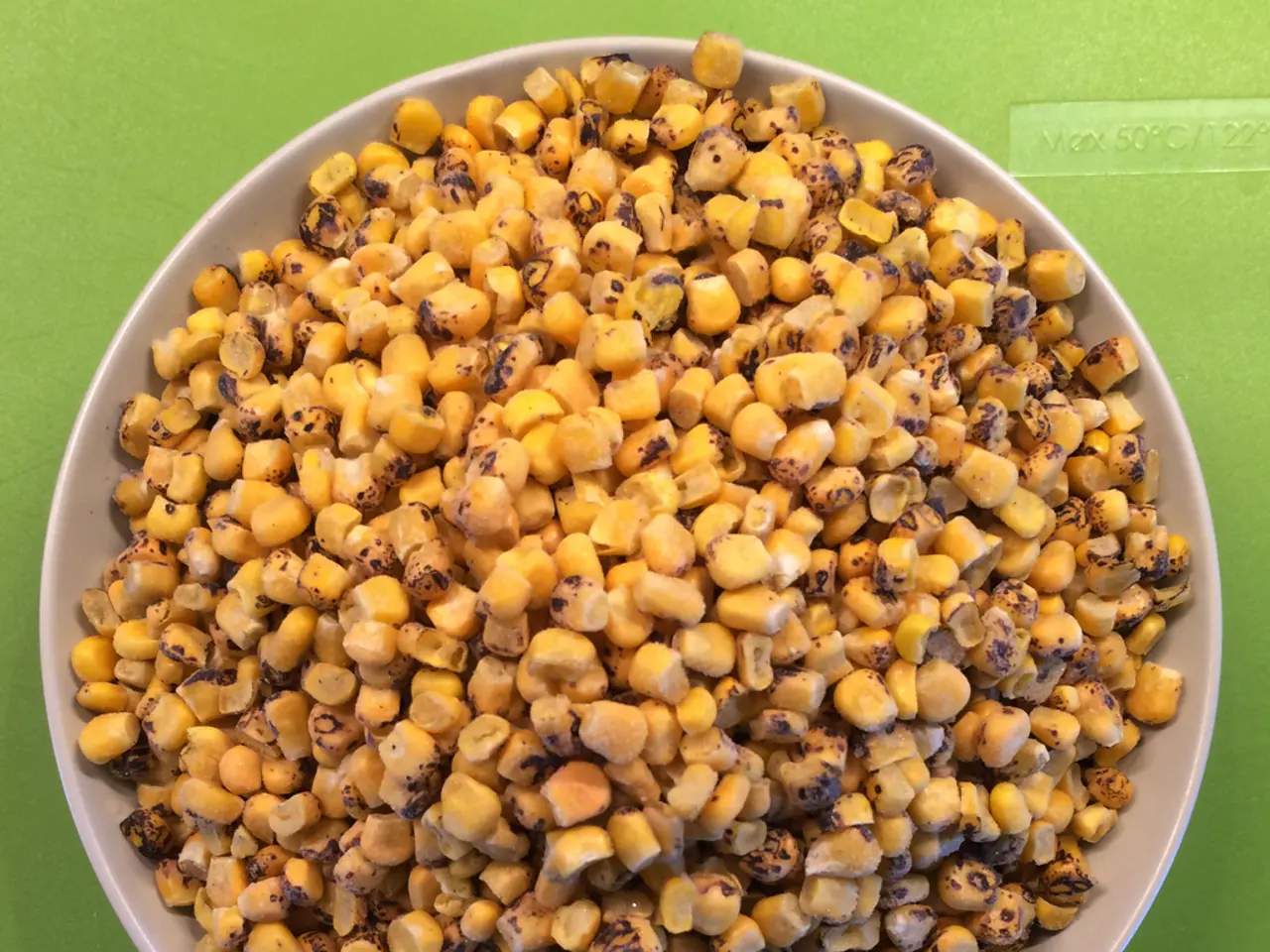By the close of 2027, Kellogg plans to remove artificial colors from its cereal portfolio
In a significant move towards healthier food options, several large food manufacturers have announced plans to remove artificial food dyes from their products. Among these is WK Kellogg Co., which has committed to stopping the use of artificial dyes in its breakfast cereals by the end of 2027.
Kellogg's popular cereals, such as Froot Loops, Apple Jacks, Frosted Flakes, and Rice Krispies, will undergo reformulation, transitioning away from petroleum-based food dyes. The change is in response to a push from Health and Human Services Secretary Robert F. Kennedy Jr. to crack down on synthetic food additives.
Kellogg's move is part of a larger trend. As of May, the U.S. Food and Drug Administration has approved three additional color additives from natural sources. Other companies, including PepsiCo, ConAgra, The Hershey Company, McCormick & Co., J.M. Smucker, Nestlé USA, and Kraft Heinz, have announced similar plans in recent months.
Nestlé has pledged to eliminate artificial colors from its U.S. foods and beverages by mid-2026. General Mills plans to remove artificial dyes from its U.S. cereals and all foods served in K-12 schools by mid-2026. Kraft Heinz has committed to removing artificial dyes from its U.S. products by 2027.
The Consumer Brands Association (CBA), which includes Coca-Cola, General Mills, Colgate-Palmolive, Kraft Heinz, Campbell’s, Church & Dwight, Ferrero USA, and others, has pledged through a voluntary initiative to stop manufacturing food and beverage products with certain FDA-certified artificial dyes by December 31, 2027.
Mars Wrigley North America has also joined the movement, announcing that products across four categories of its popular treats will be made "without Food, Drug & Cosmetic (FD&C) colors" starting in 2026.
Kellogg aims to provide consumers with more whole grains, fiber, and less of what they don't want in their cereals. The company has already made strides in this direction, as 85% of Kellogg's cereal sales contain no FD&C colors, and none of their products have contained Red No. 3 for years. Kellogg will not launch any new products with FD&C colors beginning in January 2026.
Kellogg's cereals are not only getting a color makeover but also improving in nutritional value. They provide consumers with important nutrients such as Iron, Vitamin D, and Folate. The company also plans to reformulate cereals served in schools to not include FD&C colors by the 2026-27 school year.
This movement to eliminate petroleum-based food dyes is supported and tracked by the FDA as part of a national initiative to phase out six certified color additives by the end of 2027. The shift towards natural alternatives is a promising step towards healthier food options for consumers.
Sources: [1] ABC News, Kelly McCarthy (Contributor) [2] FoodNavigator-USA [3] FDA [4] The Washington Post [5] Consumer Brands Association (CBA)
The shift in food manufacturing, led by Kellogg's removal of artificial dyes from its cereals by 2027, is part of a larger trend in the health-and-wellness industry, aligning with the wider movement towards naturally-sourced food-and-drink options. This shift, supported by the FDA as part of a national initiative, extends to other major brands like Nestlé, General Mills, Kraft Heinz, and Mars Wrigley, all aiming to provide consumers with healthier and more nutritious food and drink choices, incorporating more whole grains, fiber, and essential nutrients such as Iron, Vitamin D, and Folate in their products.




